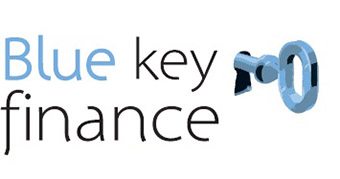5 trends affecting property investors
With the volatility of the share market, investors will once again be turning to real estate. The key challenges right now for property investors include:
Ongoing foreign investment
With the Aussie dollar just over US$0.72, our market continues to be attractive to foreign investors, which means competition at auction will remain strong. This comes despite changes to foreign investment laws last year, which basically added a few extra dollars to the Government coffers and not much to dampen the foreign demand for Australian properties.
To avoid a bidding war and paying more than you should, turning to a property advocate to help source better properties and negotiate a more realistic price is even more important today than ever before. If you’re in need of a referral to a trusted and long standing company, we’d be happy to put you in contact with one.
Oversupply of property looms
With developments going up all the time and the recent availability of secure but cheap finance, oversupply is set to be a major issue in the coming years.
Coupled with ASIC and APRA changes, this will place more pressure on rental yields and valuation prices at settlement time, with buyers needing to kick in additional money or equity. Buyers with a strong equity/savings position will put them in a better position to cope with a market increasingly under valuation pressure at settlement.
Impact of ASIC and APRA regulatory changes
These major regulatory changes, have had a flow on effect to lending guidelines, which has an immediate effect on determining one’s borrowing capacity. Such changes implemented by the banks include:
- Increasing the ‘assessment interest rate’ on client’s current and proposed loan facilities
- Shading gross rental income down to as low as 75%
- Accepting only 80% of one’s overtime, bonuses, commission and allowance income
- Calculating interest only repayments as ‘Principle & Interest’ at the bank’s high ‘assessment interest rate’ amortised over 25 years instead of 30 years.
- Removing negative gearing benefits from their borrowing capacity calculator
- Applying a new servicing loading of 20 – 30% to all repayments on existing and proposed loan facilities
- Introducing higher interest rates for investment loans and at times a higher interest rate if you choose an interest only repayment type instead of ‘Principle & Interest’
All the above has had the effect of tightening bank lending to property investors, making it tough to expand one’s property portfolio. Ironic in a way, as the Government keeps pushing us to plan ahead to be self-funded retirees but making it tough in the interim.
Tiered interest rates
The move last year by banks to a two-tiered interest rate structure saw many investor borrowers paying interest rates between 0.27% and 0.60% higher than those charged to owner occupiers. Some of these additional costs are likely to be passed on to tenants.
Negative gearing
This will remain in the political speak for some time as Government always need to find efficient ways to reduce the ongoing annual budget deficits.
As you all know, negative gearing is the practice whereby an investor borrows money to purchase an income producing asset, expecting the gross income to be less than the cost of owning and managing the investment, thus expecting annual tax refunds. These same investors expect the capital gain when selling this asset to exceed those accumulated losses.
The reality is this:
- There are far few people on the top marginal tax rate in a position to truly benefit from this property strategy.
- Over 70% of all investment property owners own just one investment property, while an additional 18% own two properties.
- 1.9 million Aussies own an investment property with 1.2 million negatively gearing.
- 840,000 Aussies with taxable incomes below $80,000 a year negatively gear investment properties. 58% of deductions by value go to Aussies with taxable incomes less than $80,000 per year, with only 13% go to those with taxable incomes above $200,000.
- Changes to the negative gearing laws could have a harmful and far reaching effect on the entire property market – from buyers to sellers, developers and even those who rent. It could go even further to the ancillary industries that supply the construction industry, resulting in the devaluation of the property market and a reduction in net wealth.
As our investors face these mounting challenges, we want you to call us any time so we can more than ever, provide you with choice, efficient service and great advice specific to your own circumstances.
If you haven’t already, click here to download our FREE E-Book on “Investors” or email us instead and we’ll send it to you within 24 hours.


Leave a Reply
Want to join the discussion?Feel free to contribute!